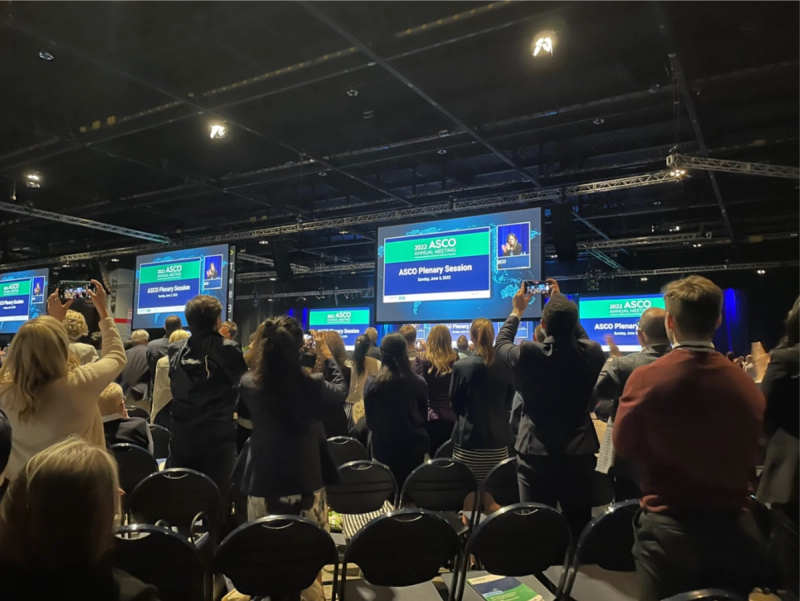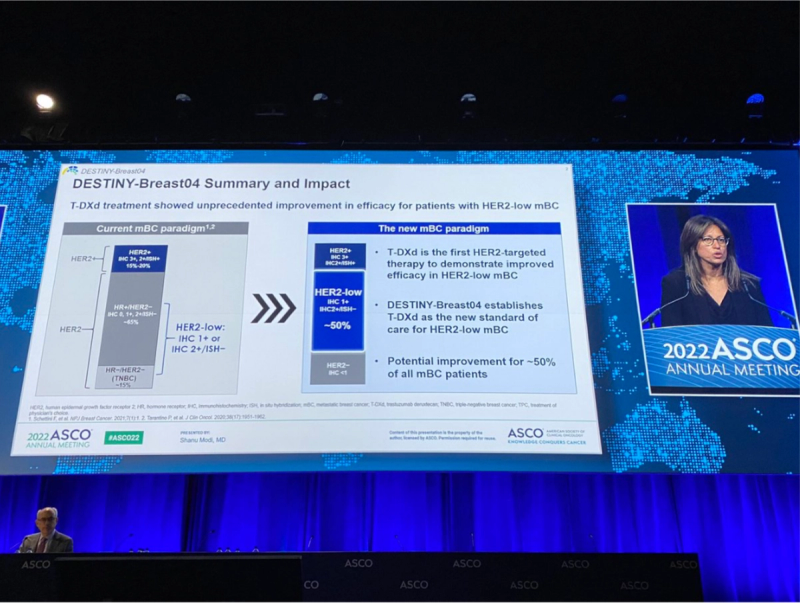When we truly make a difference…
When we truly make a difference…

In 2022, as in previous years, I attended the ASCO conference in Chicago in person, excluding the COVID era. The field of oncology has been stagnating, with few major breakthroughs since the introduction of checkpoint inhibitors in melanoma. I found myself at a career crossroad, questioning the value of my work in drug development. I was somewhat jaded, skeptical, and impatient for motivation.
Then, on June 5th, 2022, history was made. Dr. Shanu Modi from MSKCC presented the phase 3 DESTINY-Breast04 trial, which revealed that trastuzumab deruxtecan (T-DXd) doubled progression-free survival (PFS) for patients with HER2-low metastatic breast cancer and significantly improved overall survival (OS), regardless of hormone receptor status, compared to standard chemotherapy.
The results are practice-changing and monumental, redefining the treatment approach for a large population of metastatic patients. The FDA followed suit on August 5th, 2022, granting approval.

Tears welled up as I tried to conceal my emotions during the ASCO presentation. I felt embarrassed but deeply moved. This was the motivation I needed. While Dr. Modi rightfully deserved credit for the trial's success, I recognized the countless individuals behind the scenes at the company who contributed to this achievement. Among them, someone from clinical development designed and spearheaded the drug's development in this patient population. It's not very often for such a groundbreaking trial to be presented at ASCO. From doubting the value of my work in the industry, I now felt validated in my belief that I am indeed making a difference in the lives of a larger patient population. I wasn't just another doctor who ventured into the "dark side." I was proud of who I am: a drug developer. I deeply admired my colleagues at Daichii and AZ.
To provide perspective, approximately 60% of HER2-negative metastatic breast cancers express low levels of HER2. Yet, these have traditionally been categorized and treated as HER2-negative breast cancers, with treatment decisions guided by hormone receptor status. Following resistance to initial therapies, patients with HER2-low breast cancers have limited late-line targeted options and often receive palliative single-agent chemotherapy. One potential explanation for the efficacy of ADCs in this patient population is the bystander effect. To simplify, it's akin to a bomb targeting only houses with red marks on the roof, but due to the proximity of unmarked houses, they too are affected.
Leaving ASCO that year, I felt a renewed sense of hope and validation. My work mattered, and I wasn't merely in the industry for the sake of a cushy job, as opposed to direct patient care.